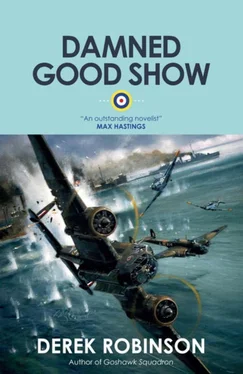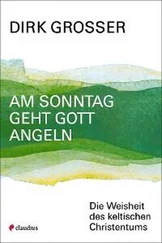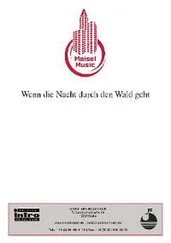“Good heavens, no.” He had an image of her surrounded by hungry Hampden pilots while she searched for Spitfires.
“I don’t see how he can approve unless he meets the bride-to-be.” But food arrived, and she forgot the CO. She skipped from subject to subject; nothing obsessed her. He liked that. Flying was his life, and people who interfered with flying annoyed him. She made him proud to be a pilot, maybe not a Spitfire pilot and something would have to be done about that, but still there was plenty of time…
They drove back to Albany and suddenly she was almost in tears. “Go now,” she said. “Don’t wait. It’s too painful. Go, go.” He packed his bag and kissed her. For a second she responded, but then she could barely stand to look at him. He thought he knew her. Obviously he didn’t. He felt as if he had been poked in the stomach with a walking-stick. He left as silently as a burglar.
2
The Bentley coasted onto the forecourt of a petrol station near Stevenage. A long way from Lincolnshire.
“I was in the last lot,” the owner said. He was middle-aged, gaunt and gloomy. “Durham Light Infantry. Very light, by the time the Armistice came.” He raised his left arm; the sleeve was pinned up at the elbow. “So don’t think I’m not patriotic.” He looked enviously at the wings on their tunics. “Can’t you get filled up at an aerodrome?”
“Never make it. We’re running on fumes,” Silk said.
“We got recalled from leave,” Langham said. “Urgent telegram, top priority. The whole squadron’s on operations.”
“Dawn patrol,” Silk said.
“Everything’s coupons, coupons,” the owner said. “Bleeding inspectors…”
“Rules are made to be broken,” Silk said. “We thought you might have a few pre-war gallons still in the pumps. At the going price, of course.”
“You’ll get me shot, you will.” He sold them two gallons of petrol for three pounds. “Nice motor,” he said. “Lucky sods. We marched every bloody where, we did.”
They drove north, in the gathering dusk. “Look,” Silk said, and tapped the petrol gauge. “You can actually see the needle going down. She’s drinking like a fish.”
“I’ll drive fast,” Langham said. “That way, we’ll get there before we run out.”
Near Peterborough it was obvious that the plan wasn’t working. They stopped at a coaching inn and had dinner. “You look terrible,” Langham said. “Eyes like poached eggs. What happened to you?”
“Two redheads,” Silk explained. “It’s one too many for a mere boy like me. I was keeping the second-best for you, but you disappeared.”
“I was otherwise engaged. In fact, I don’t know how, but I actually got engaged. You know: to be married.”
“Ah.” Silk frowned, and nodded. “Well, now.”
“She thinks I’m a Spitfire pilot.”
“Explains a lot. Bloody glory boys, they are.” Silk drank beer and watched Langham over the rim of the glass. “I hear no cheers.”
“She’s a wonderful, beautiful girl. I’m very lucky.” He made it sound like a death in the family. Silk changed the subject.
Somewhere near the edge of Lincolnshire, with the fuel gauge nudging zero, Langham switched off the engine and let the Bentley coast down a long and gentle slope. He saw a small farmhouse, all dark except for a slight gleam of moonlight on its windows. Parked on the grass verge was a Ford shooting brake. He stopped alongside it. “What’s up?” Silk asked.
“Not a word,” Langham whispered. “Take the wheel. Be ready to depart with all speed.” He held up a coil of rubber tube. “I pinched it from that garage.”
One end went into the Ford’s petrol tank. Langham sucked on the other end; pinched it shut and breathed hard; sucked again; repeated the routine; finally tasted petrol. One last suck and he had a mouthful; stuffed the splashing tube into the Bentley’s tank and spat vigorously, again and again.
“Dog,” Silk said quietly.
It was on a chain, in front of the farmhouse. When it howled, the sound was so raw that Langham almost dropped the tube. “Nice doggie,” he muttered. “Back to sleep.” It kept howling, and the chain rattled as it lunged. A bedroom window was flung open, an angry threat was shouted. Still the dog howled. “How much longer?” Silk asked. “Nearly there,” Langham said. Now the angry man saw them, and cursed, and vanished. “I bet he’s got a gun,” Silk said. “Farmers always have guns.” The dog was becoming hysterical. “Another twenty seconds,” Langham said. “I’m not doing this twice.” Silk turned the key in the ignition: no success. “Please, please,” he said. “Please with pink icing on.” A door slammed. He tried again: nothing. “Could that stuff be diesel?” he asked. More windows, lights, voices. “Eighteen, nineteen, twenty,” Langham said. “Now go!” He vaulted into the back seat. The engine fired and the Bentley accelerated in a spray of gravel and black exhaust just as the farmer skidded out of his gateway and tripped on his nightshirt. The shotgun blew a hole in a hedge. By the time he got up, the Bentley was fifty yards away and backfiring like a cowboy movie. “I don’t think she likes your petrol,” Silk said.
When they put the car back in Flight Lieutenant McHarg’s lock-up, they noticed the dirt on the wings and the windscreen and the petrol splashes around the filler cap. “We’ll worry about that tomorrow,” Langham said.
3
“B” Flight went off to enjoy its three-day leave.
The threat of German measles faded. Many groundcrew recovered, enough to ensure that at least half of 409’s Hampdens were available for action. Three of these bombers and their crews were kept on stand-by. It was a tedious duty: Command could find no German naval targets for them to bomb. The stand-by crews argued about this. According to the newspapers, the Luftwaffe had not bombed anything in the West, so maybe some neutral statesman was brokering a settlement. Mussolini was the popular choice. But when Hitler made a speech and told Britain and France that the war could stop at once, they turned him down flat. Any ceasefire would condemn the world to slavery, they said. So the war wasn’t off. But it wasn’t altogether on, either. Except in Poland.
Germany had agreed to the Roosevelt Rules against bombing targets where civilians might be hit. By then the Luftwaffe had energetically bombed any number of Polish towns and villages. Civilian targets could (and would) be bombed, so the German High Command announced, because Polish civilians were involving themselves in the fighting. A week later, Germany declared that all organized fighting in Poland had ended. Warsaw was now defenseless. The Luftwaffe sent an armada of Heinkels and Dorniers to bomb the city. Ten thousand civilians died. Hitler made another speech, saying he was willing to make peace. Nobody believed him except the German people, and they had no choice in the matter.
Meanwhile, 409 Squadron’s Hampdens waited on the tarmac hardstandings. Their crews hung about, listening to the wind-up gramophone grinding out the hit songs of 1939, “Red Sails in the Sunset,” “This Can’t Be Love,” “South of the Border Down Mexico Way,” “Two Sleepy People.” The morning papers were eagerly seized but they had little to report except stuff about Poland, and everyone knew that the Poles were total goners. Hitler and Stalin had carved up the country between them. Was that part of a deal to make Hitler’s eastern border safe? Probably. Cunning bugger, Hitler. Sweden announced it was neutral. Was that news? Probably not. Belgium, Holland, Denmark, Norway, Finland and Iceland were neutral. Rumania, Bulgaria, Greece and Turkey were neutral. Italy and Spain were neutral. Ireland was neutral. Someone bought a record of “I Get Along Without You Very Well,” and the crews played it and sang it until the joke wore thin. This was turning into a very unsatisfactory war.
Читать дальше












